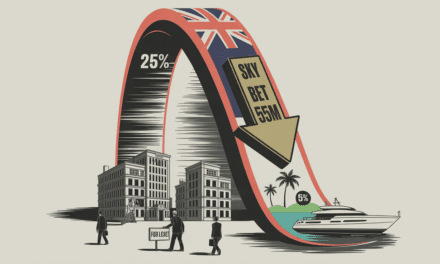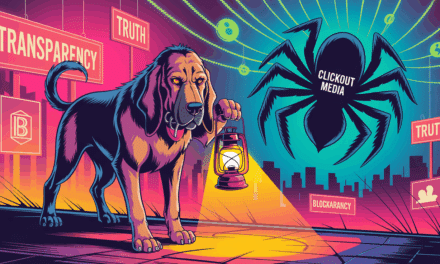A Growing Threat: Fake News and Illegal Operators
The digital gambling landscape is under siege, and the latest skirmish in the Netherlands exposes the persistent rot of unregulated casino advertising infiltrating mainstream social media. The Dutch gambling regulator, Kansspelautoriteit (KSA), recently spotlighted a flagrant violation: Kaasino, an unlicensed operator, peddled fake news on Facebook and Instagram, masquerading as a legitimate NOS Journaal broadcast. The ad featured a fabricated story of a construction worker pocketing €100,000 on an online slot, complete with an AI-generated video and voice mimicking revered Dutch anchor Rob Trip. This audacious stunt is not an outlier but a symptom of a deeper, systemic failure in platform oversight—one that regulators across Europe and beyond are scrambling to contain.
A Global Problem: Regulatory Crackdowns Intensify
The issue is far from confined to Dutch borders. Romania’s National Gambling Office has issued formal demands to Meta and Google, urging them to purge ads for blacklisted operators, with threats of fines and revenue clawbacks. In France, where online casinos remain illegal, the Autorité Nationale des Jeux (ANJ) has repeatedly flagged Facebook pages impersonating licensed brands, sowing confusion among consumers. Meanwhile, Brazil’s Attorney General’s Office fired a shot across Meta’s bow with an extrajudicial notice last month, demanding the removal of illegal gambling ads linked to fraud and money laundering risks. A probe into Meta’s ad library uncovered hundreds of non-compliant promotions, a damning indictment of the platform’s lax enforcement.
The Stakes: Fraud, Addiction, and Eroded Trust
This isn’t just a European or South American problem—it’s global, and the stakes are high. Unregulated operators exploit loose advertising policies to lure vulnerable users, often cloaking their operations in deceptive legitimacy. The use of AI-generated content, as seen in the Kaasino case, marks a troubling escalation, blending sophisticated tech with old-school grift. These ads don’t just skirt regulations; they undermine trust in licensed operators and expose consumers to fraud, addiction, and financial ruin. The root cause isn’t merely rogue operators but the platforms’ algorithmic indifference, prioritizing ad revenue over compliance.
Partial Progress: Regulatory Wins and Platform Responses
Some progress glimmers on the horizon. Germany’s Gemeinsame Glücksspielbehörde (GGL) reported a “significant impact” from Google’s late-2024 policy update, which banned affiliate ads for unlicensed operators. The move tightened the noose on illicit promotions, offering a blueprint for others. Meta, too, has responded—albeit sluggishly—with a July policy overhaul requiring advertisers to submit proof of legal status, including business names, websites, and valid gambling licenses. Yet, these measures feel like bandages on a festering wound. Platforms like Meta and Google, with their vast resources and AI-driven moderation, have no excuse for letting unlicensed ads slip through. The KSA’s Kaasino takedown and similar crackdowns reveal a reactive, not proactive, approach to enforcement.
The Systemic Fix: Beyond Band-Aid Solutions
The deeper issue lies in the misalignment of incentives. Social media giants profit from ad volume, not compliance rigor. Regulators, meanwhile, are caught in a jurisdictional quagmire, battling global platforms with local laws. The solution isn’t tweaking ad policies or issuing stern warnings—it’s systemic. Platforms must integrate real-time license verification into their ad ecosystems, leveraging APIs from regulators to cross-check advertisers instantly. Anything less is a half-measure, leaving the door ajar for the next Kaasino to waltz through.
The Path Forward: Accountability or Chaos
For now, the battle rages on. Licensed operators, squeezed by unfair competition, demand accountability, while regulators wield fines and notices like blunt instruments. The public, caught in the crossfire, faces a digital minefield where fake news and illegal slots are just a click away. Until platforms prioritize integrity over revenue, these incidents will remain the tip of a much larger, murkier iceberg.
Disclaimer: This article and its accompanying images may have been enhanced using AI tools to ensure smoother content delivery and visual appeal.





